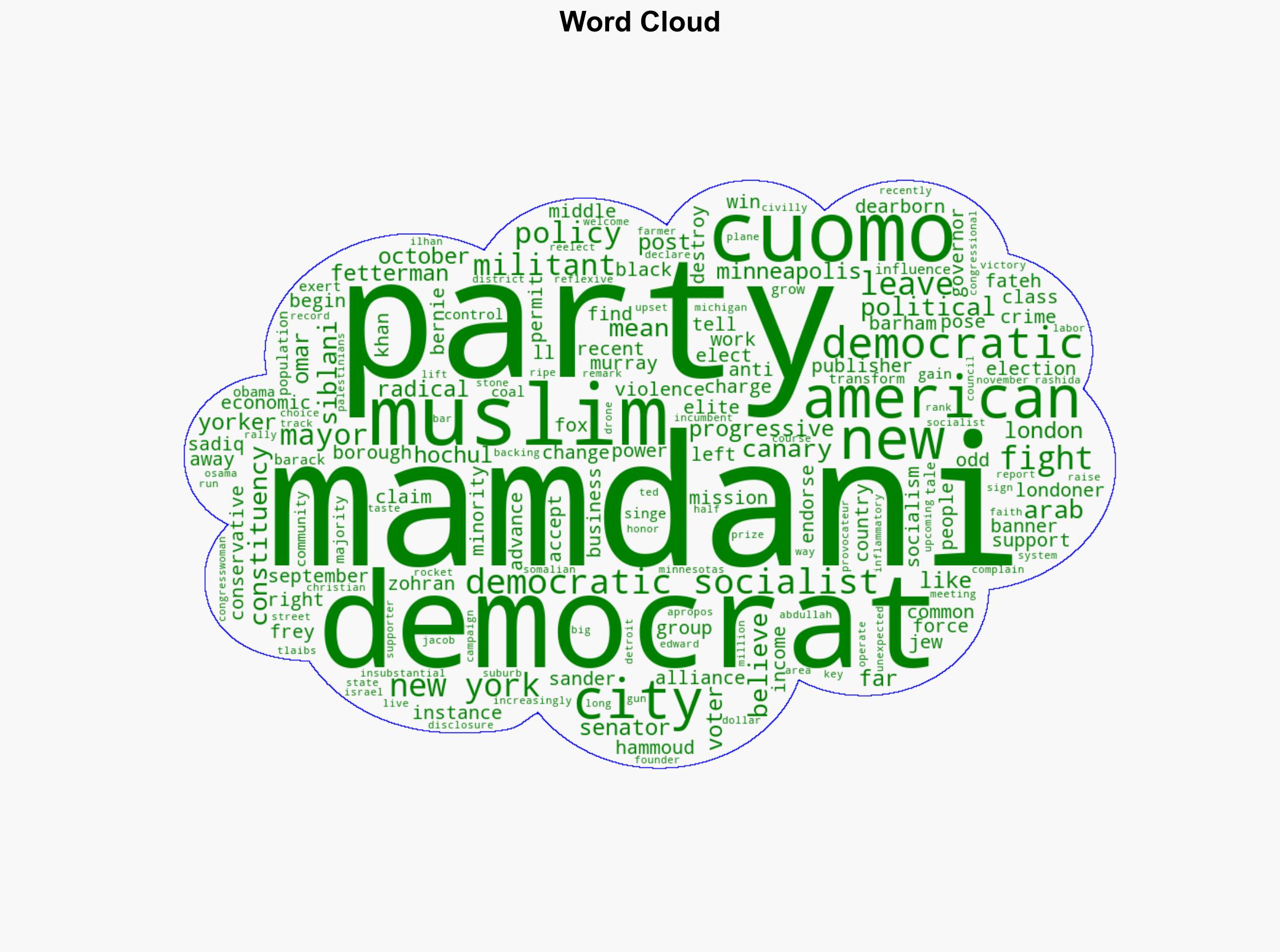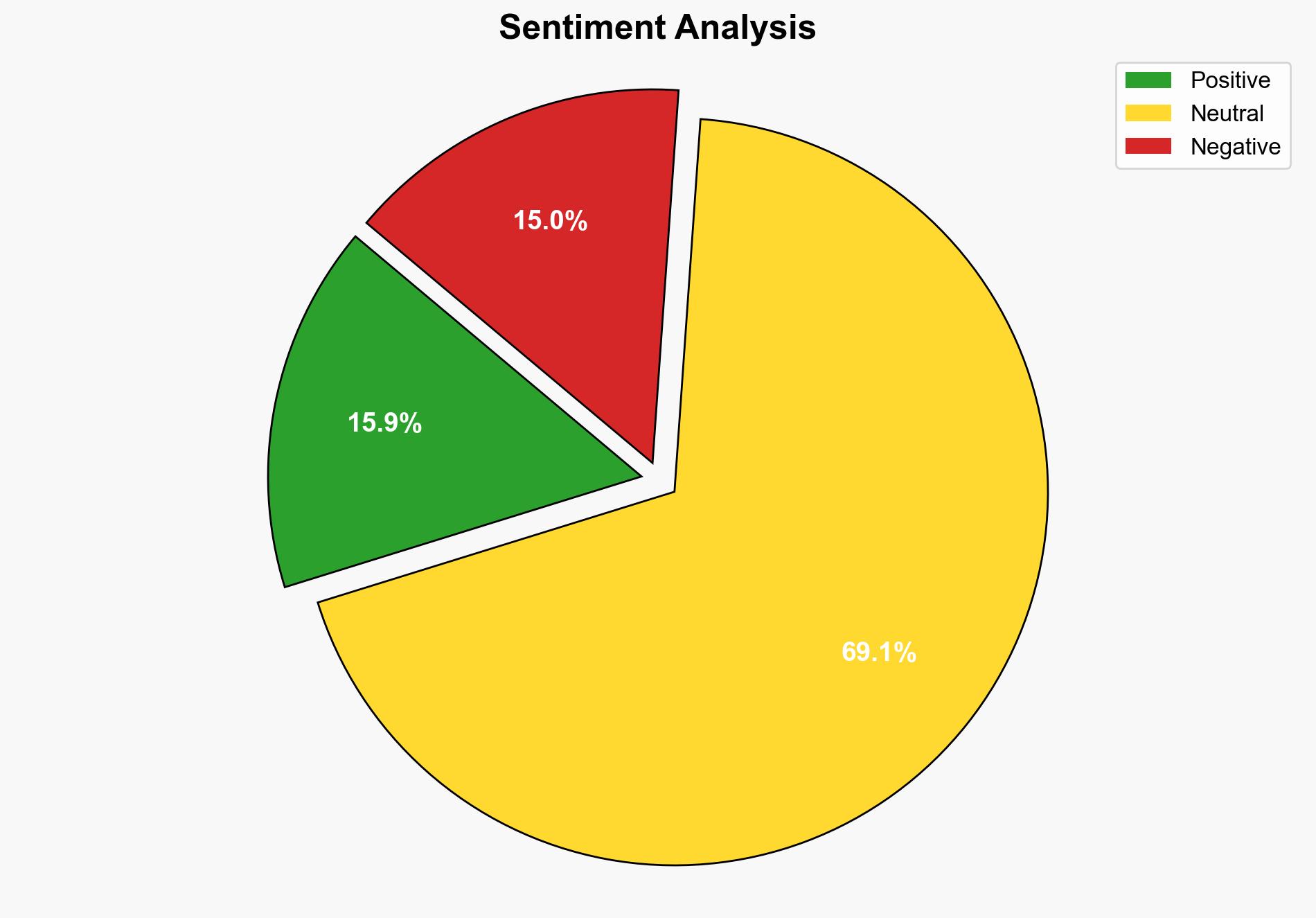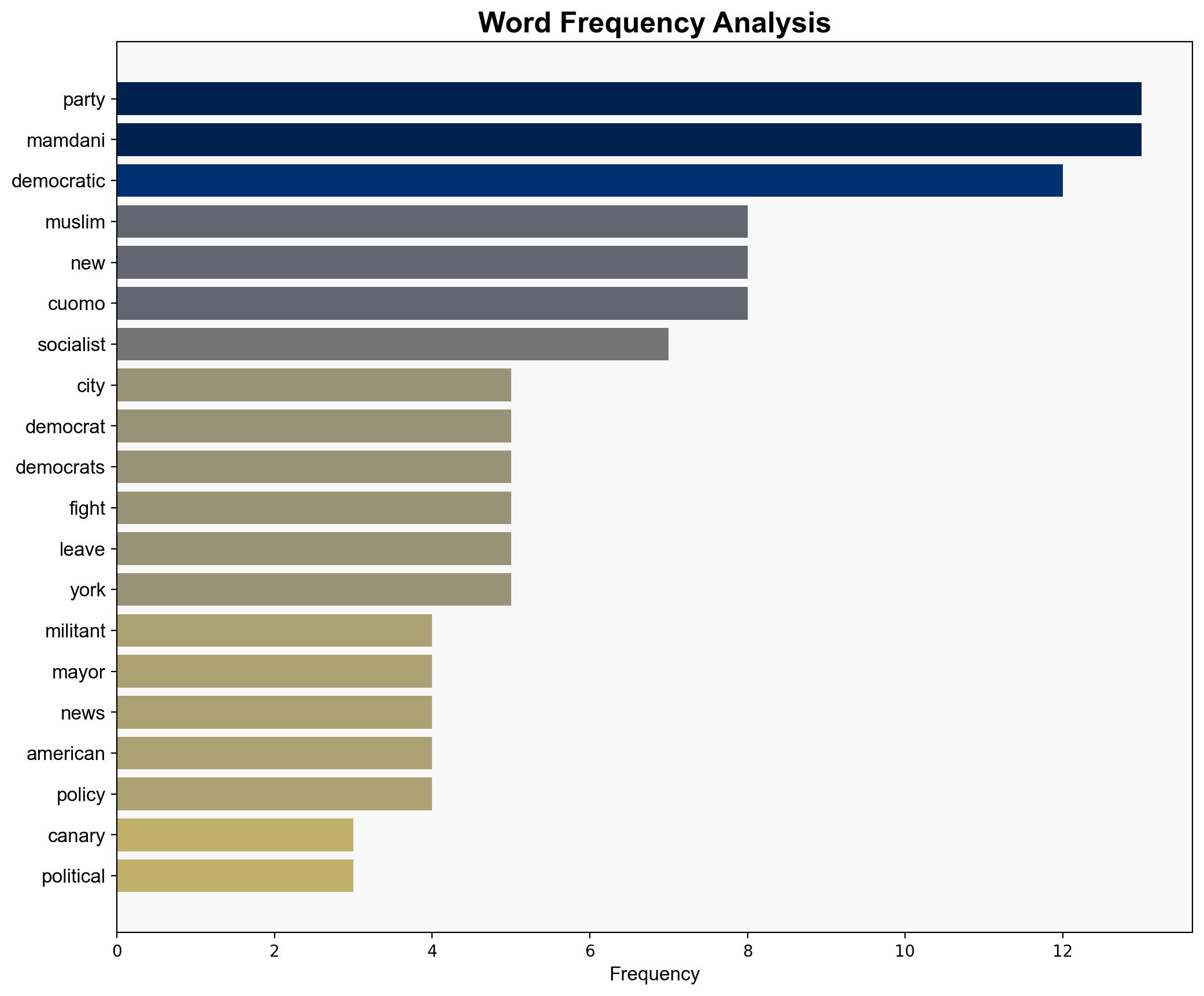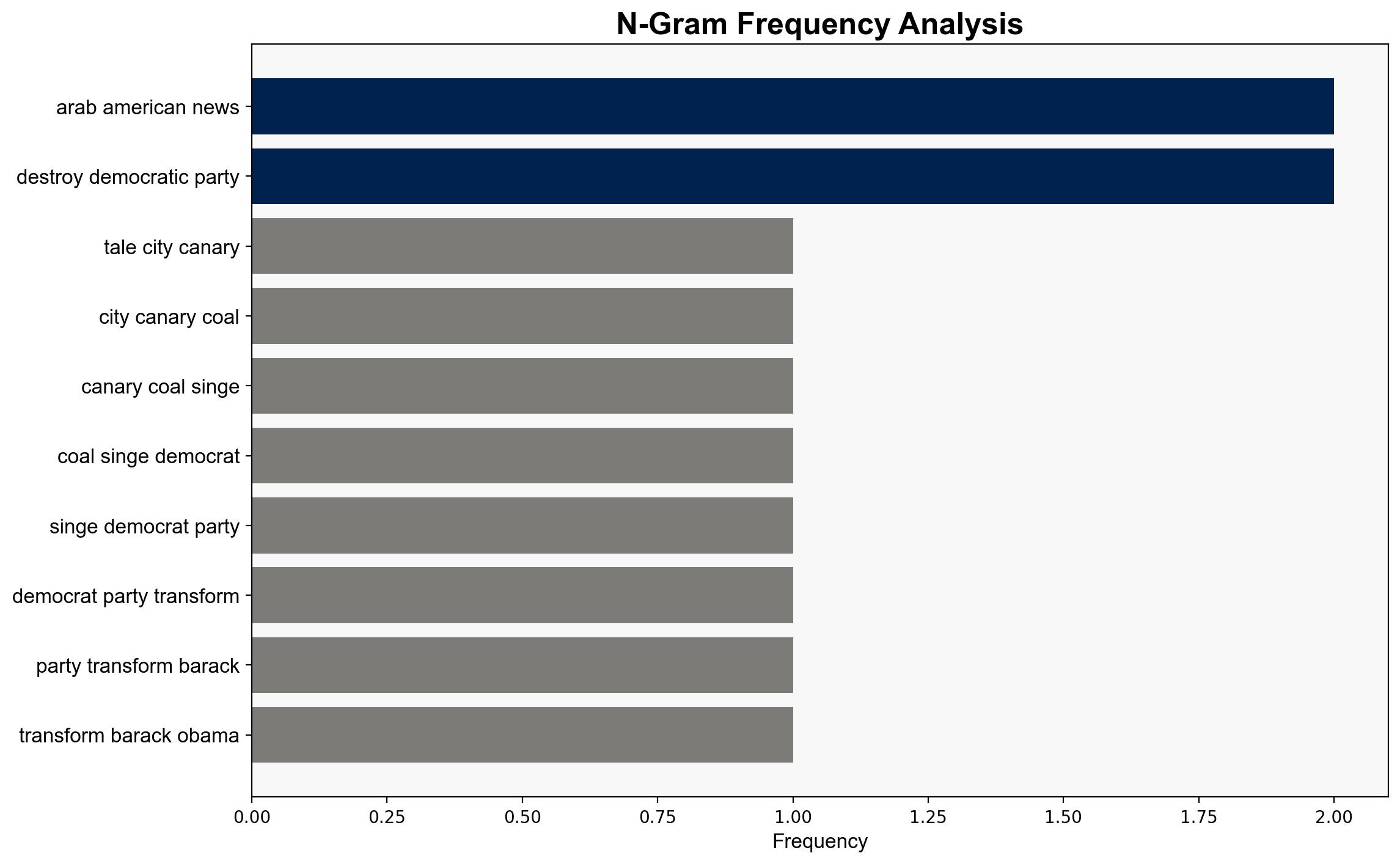A Tale of Four Cities – Americanthinker.com
Published on: 2025-11-01
Intelligence Report: A Tale of Four Cities – Americanthinker.com
1. BLUF (Bottom Line Up Front)
The most supported hypothesis is that there is a growing political influence of Muslim communities and Democratic Socialists in certain U.S. cities, potentially reshaping local political landscapes. Confidence Level: Moderate. Recommended action includes monitoring these political shifts and assessing their implications for broader national policies and security.
2. Competing Hypotheses
1. **Hypothesis A**: The increasing political influence of Muslim communities and Democratic Socialists in cities like Dearborn and Minneapolis is a strategic shift aimed at transforming local governance and policy priorities, potentially aligning them with broader progressive and socialist agendas.
2. **Hypothesis B**: The observed political changes are isolated incidents driven by local dynamics and do not represent a coordinated effort to shift political power or policy at a national level. These changes are more reflective of demographic shifts and local political evolution rather than a strategic transformation.
Using ACH 2.0, Hypothesis A is better supported due to the presence of multiple instances across different cities where similar patterns of political influence are observed, suggesting a broader trend rather than isolated cases.
3. Key Assumptions and Red Flags
– **Assumptions**: Hypothesis A assumes a coordinated effort among Muslim communities and Democratic Socialists to influence political outcomes. Hypothesis B assumes these changes are organic and not strategically driven.
– **Red Flags**: The narrative may contain bias, particularly in the portrayal of Muslim communities and Democratic Socialists as monolithic groups with uniform goals. The potential for cognitive bias exists in interpreting these groups as threats without substantial evidence.
– **Inconsistent Data**: Lack of comprehensive data on the actual influence of these groups on policy changes and electoral outcomes.
4. Implications and Strategic Risks
– **Political Risk**: Potential polarization and increased tension in cities experiencing these shifts, which could lead to social unrest or political instability.
– **Geopolitical Risk**: If perceived as a threat, these changes could influence national policy debates on immigration, integration, and multiculturalism.
– **Psychological Dimension**: The narrative could fuel divisive rhetoric and increase distrust among different community groups.
5. Recommendations and Outlook
- Monitor the political developments in key cities to identify patterns and potential national implications.
- Engage with community leaders to foster dialogue and understanding, mitigating the risk of polarization.
- Scenario Projections:
- Best Case: Increased political diversity leads to more inclusive policies and community engagement.
- Worst Case: Heightened tensions and polarization result in social unrest and policy gridlock.
- Most Likely: Gradual adaptation to demographic changes with localized policy shifts.
6. Key Individuals and Entities
– Rashida Tlaib
– Abdullah Hammoud
– Osama Siblani
– Jacob Frey
– Omar Fateh
– Ilhan Omar
– Zohran Mamdani
– Sadiq Khan
– John Fetterman
7. Thematic Tags
national security threats, cybersecurity, counter-terrorism, regional focus





